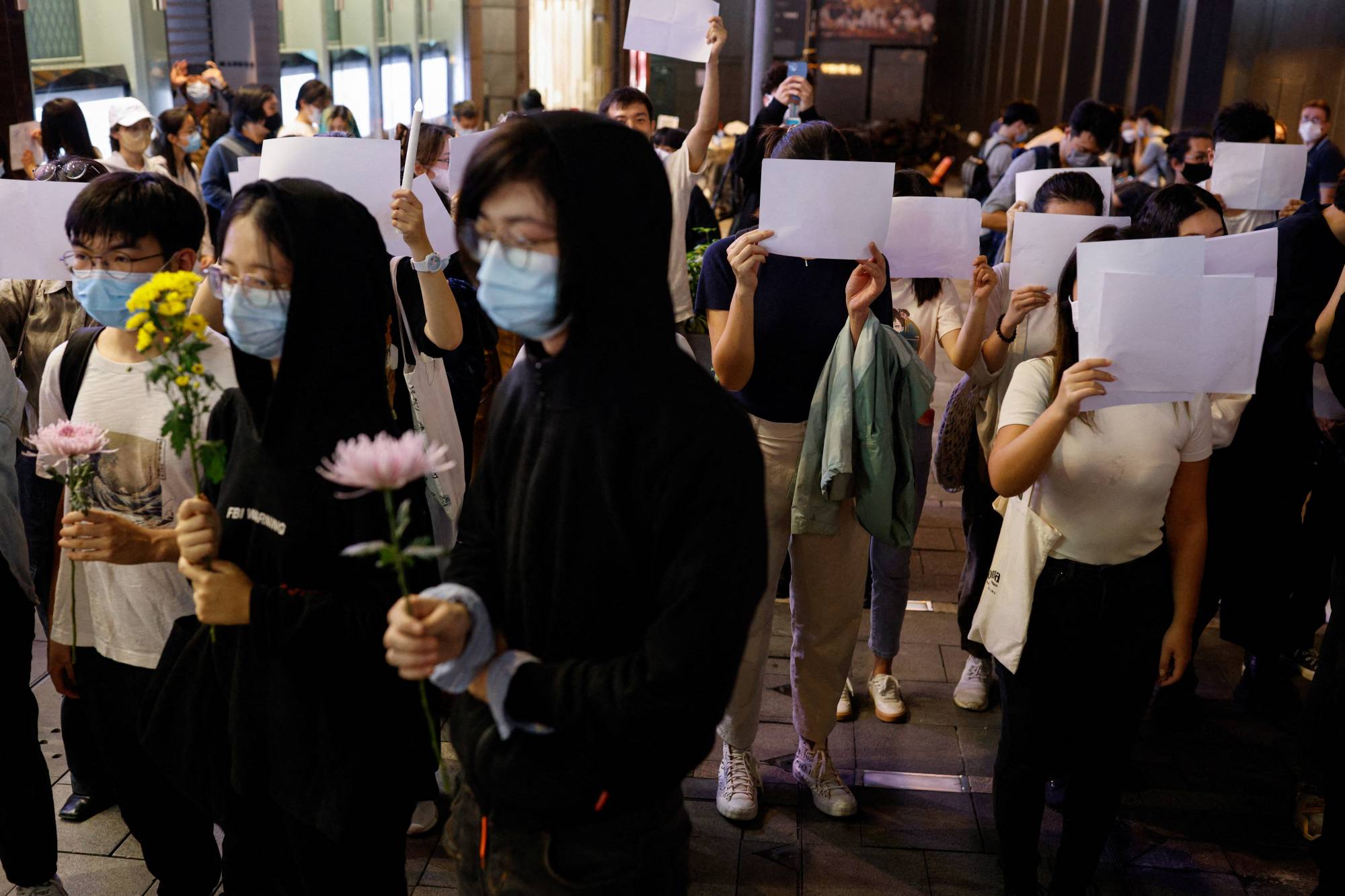Protesters took to the streets of China’s cities in a rare show of political dissent. While the demonstrations focused largely on the authorities’ "zero-COVID" policy, they sparked speculation that a pro-democracy movement — and even a Taiwan-style political transition — was and is possible. But this is unlikely, not least because decades of strict family-planning policies have left China with too few young people to join the fight.
A country can be said to be having a “youth boom” when the proportion of people aged 15-29 exceeds 28%. As the most economically dynamic, politically passionate and physically active members of society, people in this age cohort are particularly likely to challenge norms, participate in protests and demand reform. So, when a country is experiencing a youth boom, it may also find itself on the path to political change — including, potentially, democratization.
That was the case in Taiwan and South Korea. As the share of young people increased — from 25% in each country in 1966 to a peak of 31% in the early 1980s — so did economic growth and pro-democratic fervor. Both economies became democracies in 1987, when their populations’ median age was 26. A youth boom also contributed to the eruption of the Arab Spring uprisings in 2010, when the median age across the Arab world was just 20.

















With your current subscription plan you can comment on stories. However, before writing your first comment, please create a display name in the Profile section of your subscriber account page.